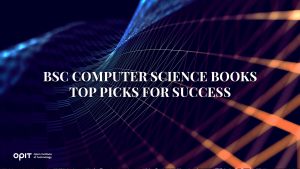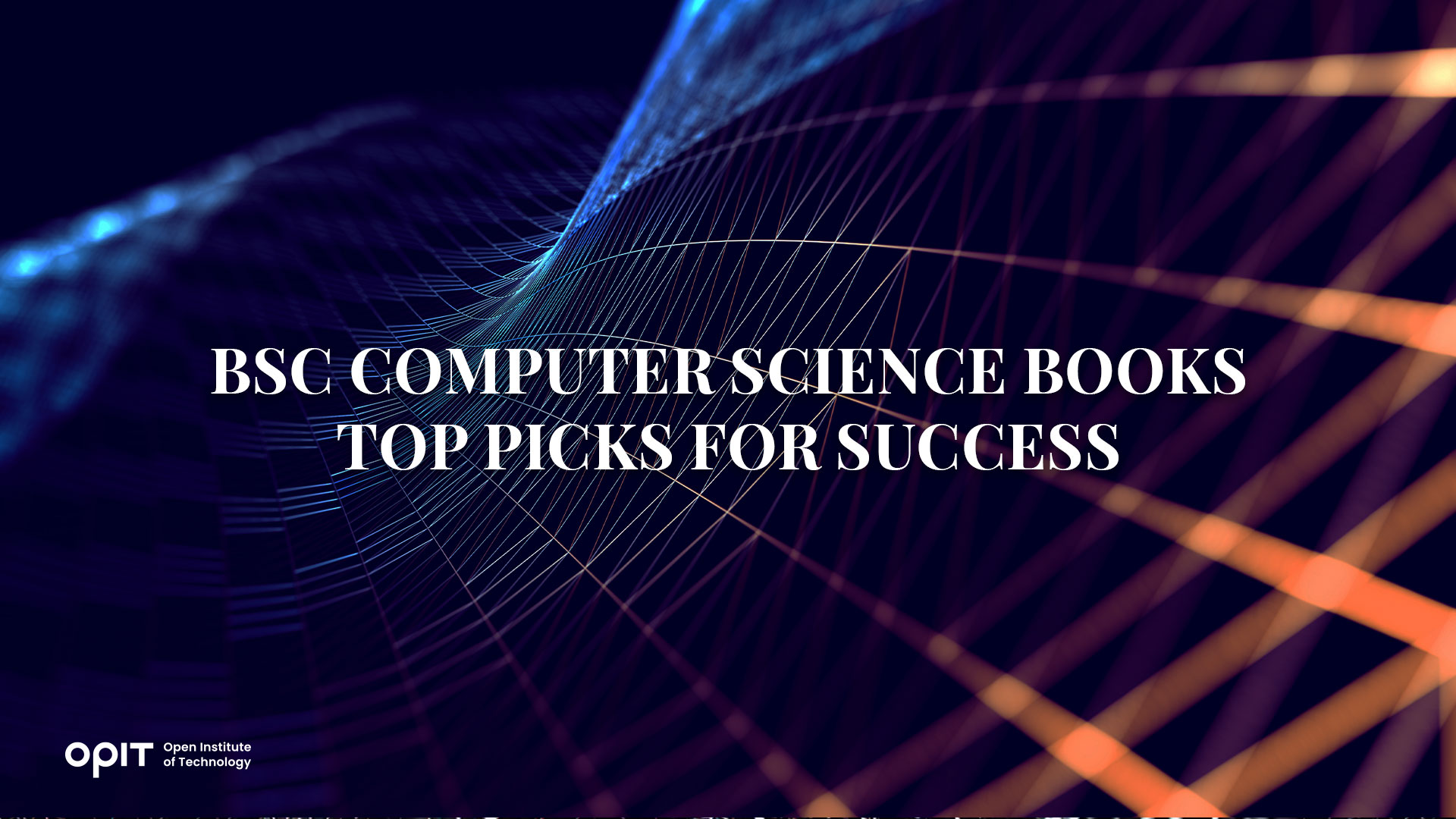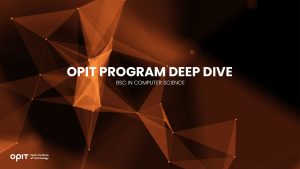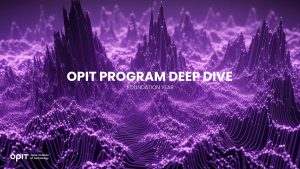

Books represent gateways to new worlds, allowing us to gain valuable knowledge on virtually any topic. Those interested in exploring computer science books face two challenges. First, just like you can’t build a good house without a proper foundation, you can’t expand your knowledge if you don’t understand basic concepts. Secondly, technology is always evolving, so besides understanding how things work, you need to stay current with the latest trends.
Finding books that help you build a good foundation and follow innovations isn’t easy. Fortunately, you don’t have to go through hundreds of titles to find the good ones. Here, we’ll introduce you to the best BSc Computer Science books that will set you up for success.
Top BSc Computer Science Books
These BSc Computer Science books can “program” your mind and help you absorb knowledge.
Introduction to Computer Science
Many people are eager to learn how to program and immerse themselves in the IT world. But the first step toward that is adopting fundamentals. Before jumping into the IT industry, you need to learn more about computer science and the basic concepts behind it.
Computer Science Illuminated by Nell Dale and John Lewis
This student-friendly book sheds light on computer science. It explores operating systems, hardware, software, and networks from “neutral ground” (without focusing on particular programming languages). Therefore, if you don’t “speak” programming languages just yet, this book will be your best friend.
Intro to Python for Computer Science and Data Science: Learning to Program With AI, Big Data, and the Cloud by Paul Deitel and Harvey Deitel
If you want to be a programming expert, you may need to speak Python, a universal language with a wide array of applications. This book teaches you how to use Python in computer science and offers the perfect balance between theoretical and practical knowledge. It transforms complex information into comprehensive and engaging data.
Data Structures and Algorithms
Finding the best BSc Computer Science book on data structures and algorithms can feel like trying to find a needle in a haystack. We found the needle for you and offer the best options.
Data Structures and Algorithms Made Easy by Narasimha Karumanchi
This book is a winner in the data structures and algorithms game. It’s the perfect option for beginners interested in learning the topic from scratch and building a solid foundation for more advanced levels. It covers basic concepts and moves on to more complex stuff without overwhelming the readers.
Data Structures and Algorithms in Java by Robert Lafore
If you’re familiar with Java and want to start with data structures and algorithms, this book is the gold standard. It will guide you on a journey from basic Arrays and Strings to advanced structures like Hash-Tables and Graphs.
Computer Networks
Computer networks are grids through which computing devices “talk to” each other and share data. Here are the books you can use to improve your knowledge and get ahead in your career.
Computer Networks by Andrew S. Tanenbaum
If you want to understand the nitty-gritty behind computer networks, this book is the way to go. Hop on a journey through email, the world wide web, video conferencing, and much more, to understand how the networks work and how to use them to your advantage.
Every chapter follows the same, easy-to-follow structure containing basic principles and real-life examples.
Computer Networking: A Top-Down Approach by James F. Kurose and Keith W. Ross
This beginner-friendly book takes a somewhat unusual approach. It first introduces students to applications and uses them to explain fundamental concepts. That way, students are exposed to the “real world” early on and can understand how networking works with ease.
Operating Systems
An operating system for a computer is like oxygen for a human; it can’t live without it. Operating systems are interfaces that support everything computers do. Here are the best books about them.
Operating Systems: Three Easy Pieces by Remzi Arpaci-Dusseau and Andrea Arpaci-Dusseau
How do operating systems work? What are the three basic concepts hiding behind every OS? Find the answers to these questions and learn everything OS-related in this book. While beginner-friendly, this amazing study can be combined with more advanced materials and offer a deeper understanding of modern OSs.
Guide to Operating Systems by Greg Tomsho
This book represents a detailed guide on installing, updating, maintaining, and configuring operating systems and everything related to them. Besides offering general info, the book explores specific OSs and allows you to peek into this world without feeling overwhelmed.
Database Systems
Database systems are like virtual warehouses where you can keep your data secure. They’re the ones we can “thank” for easy information retrieval, browsing, and organization. If you want to learn the ins and outs of database systems, these books can help.
Database Systems: The Complete Book by Hector Garcia-Molina, Jeffrey D. Ullman, and Jennifer Widom
This book is the holy grail for many computer science students. It offers a comprehensive approach and detailed explanations of everything related to database system design, use, and implementation. The book is extensive, but it’s written in an engaging way, so reading through it is a breeze.
Database Systems: Design, Implementation, & Management by Carlos Colonel and Steven Morris
Building your virtual warehouses for storing data may seem impossible. But it can become your reality thanks to this excellent book. It contains clear and comprehensive instructions on building database systems, offers concrete examples, but also focuses on the bigger picture and latest industry trends.
Software Engineering
Designing and constructing software is no walk in the park. If you’re interested in this industry, you need to build your skills meticulously. Books that can help you on this exciting (and sometimes frustrating) journey are reviewed below.
Clean Code: A Handbook of Agile Software Craftsmanship by Robert C. Martin
In this book, Robert C. Martin, a software engineering legend, discusses the seemingly insignificant differences between bad and poorly-written codes. He explains which “symptoms” bad codes manifest and how to clean them.
Code Complete: A Practical Handbook of Software Construction by Steve McConnell
One of the first (and smartest) steps toward building quality code is getting this book. Here, the author summarized everything there is to know about constructing software. Since the book contains both the basics and the more advanced construction practices, everyone finds it useful, both beginners and pros.
Additional Resources for BSc Computer Science Students
BSc Computer Science books aren’t the only spring you should drink water from if you’re thirsty for knowledge on the subject.
Online Platforms and Courses
Online platforms and courses are great resources for those who want to expand their knowledge and learn how to cash it in. The internet is overflowing with great courses focusing on various aspects of computer science. Here are a few ideas to get you started:
- Open Institute of Technology (OPIT) – The institute offers a comprehensive online BSc in Computer Science. Throughout the program, students get acquainted with everything computer science-related. After completing their studies, they’ll be able to land high-paying jobs.
- Udemy and Coursera – Although not “official” institutes and universities, these platforms deserve a seat at the table. Both Udemy and Coursera offer quality computer science courses held by some of the most respected names in the industry.
Coding Practice Websites
You’ve read books, attended courses, and feel like you know everything there is to know about the theoretical part. But is there a way to put this theory into practice and see whether your codes work? The answer is yes! Practice makes perfect, and coding practice websites will become your best friends and help you conquer programming.
- Coderbyte – Solve real-life coding issues and drive your skills to perfection. With over a dozen available programming languages, you can try out as many ideas as you’d like.
- HackerRank – HackerRank is home to hundreds of coding challenges. Plus, it has leaderboards, so you can see how you compare to other coders. It’s also home to useful tutorials, and since the website is popular, you may even be able to land your dream job.
Computer Science Forums and Communities
Is there a better place for like-minded people to meet and discuss the topics they’re passionate about? Computer science forums and communities should be an important stop on your way to becoming an expert on the subject.
Tips for Success in BSc Computer Science
Success doesn’t happen overnight (at least for most people). If computer science is your true passion, here’s how to master it:
- Focus on the basics to create a good foundation.
- Put your thinking cap on and practice problem-solving and critical thinking skills.
- Participate in group projects and collaborations (teamwork makes the dream work).
- Keep up with the latest industry trends.
- Gain valuable hands-on experience through internships.
Acquire Computer Science Knowledge Effectively
Although books don’t offer practical knowledge, they can be invaluable allies in setting a great theoretical foundation. By carefully choosing the best books and putting effort into developing your skills, you’ll become a pro in a jiff.
Related posts

Computer Science is fast becoming one of the most valuable fields of study, with high levels of demand and high-salaried career opportunities for successful graduates. If you’re looking for a flexible and rewarding way to hone your computing skills as part of a supportive global community, the BSc in Computer Science at the Open Institute of Technology (OPIT) could be the perfect next step.
Introducing the OPIT BSc in Computer Science
The OPIT BSc in Computer Science is a bachelor’s degree program that provides students with a comprehensive level of both theoretical and practical knowledge of all core areas of computer science. That includes the likes of programming, databases, cloud computing, software development, and artificial intelligence.
Like other programs at OPIT, the Computer Science BSc is delivered exclusively online, with a mixture of recorded and live content for students to engage with. Participants will enjoy the instruction of world-leading lecturers and professors from various fields, including software engineers at major tech brands and esteemed researchers, and will have many paths open to them upon graduation.
Graduates may, for example, seek to push on with their educational journeys, progressing on to a specialized master’s degree at OPIT, like the MSc in Digital Business and Innovation or the MSc in Responsible Artificial Intelligence. Or they could enter the working world in roles like software engineer, data scientist, web developer, app developer, or cybersecurity consultant.
The bullets below outline the key characteristics of this particular course:
- Duration: Three years in total, spread across six terms.
- Content: Core courses for the first four terms, a student-selected specialization for the fifth term, and a capstone project in the final term.
- Focus: Developing detailed theoretical knowledge and practical skills across all core areas of modern computer science.
- Format: Entirely online, with a mixture of live lessons and asynchronous content you can access 24/7 to learn at your own pace.
- Assessment: Progressive assessments over the course of the program, along with a capstone project and dissertation, but no final exams.
What You’ll Learn
Students enrolled in the BSc in Computer Science course at OPIT will enjoy comprehensive instruction in the increasingly diverse sectors that fall under the umbrella of computer science today. That includes a close look at emerging technologies, like AI and machine learning, as well as introductions to the fundamental skills involved in designing and developing pieces of software.
The first four terms are the same for all students. These will include introductions to software engineering, computer security, and cloud computing infrastructure, as well as courses focusing on the core skills that computer scientists invariably need in their careers, like project management, quality assurance, and technical English.
For the fifth term, students will have a choice. They can select five electives from a pool of 27, or select one field to specialize in from a group of five. You may choose to specialize in all things cybersecurity, for example, and learn about emerging cyber threats. Or you could focus more on specific elements of computer science that appeal to your interests and passions, such as game development.
Who It’s For
The BSc in Computer Science program can suit a whole range of prospective applicants and should appeal to anyone with an interest or passion for computing and a desire to pursue a professional career in this field. Whether you’re seeking to enter the world of software development, user experience design, data science, or another related sector, this is the course to consider.
In addition, thanks to OPIT’s engaging, flexible, and exclusively online teaching and learning systems, this course can appeal to people from all over the globe, of different ages, and from different walks of life. It’s equally suitable for recent high school graduates with dreams of making their own apps to seasoned professionals looking to broaden their knowledge or transition to a different career.
The Value of the BSc in Computer Science Course at OPIT
Plenty of universities and higher education establishments around the world offer degrees in computer science, but OPIT’s program stands out for several distinctive reasons.
Firstly, as previously touched upon, all OPIT courses are delivered online. Students have a schedule of live lessons to attend, but can also access recorded content and digital learning resources as and when they choose. This offers an unparalleled level of freedom and flexibility compared to more conventional educational institutions, putting students in the driving seat and letting them learn at their own pace.
OPIT also aims not merely to impart knowledge through lectures and teaching, but to actually help students gain the practical skills they need to take the next logical steps in their education or career. In other words, studying at OPIT isn’t simply about memorizing facts and paragraphs of text; it’s about learning how to apply the knowledge you gain in real-world settings.
OPIT students also enjoy the unique benefits of a global community of like-minded students and world-leading professors. Here, distance is no barrier, and while students and teachers may come from completely different corners of the globe, all are made to feel welcome and heard. Students can reach out to their lecturers when they feel the need for guidance, answers, and advice.
Other benefits of studying with OPIT include:
- Networking opportunities and events, like career fairs, where you can meet and speak with representatives from some of the world’s biggest tech brands
- Consistent support systems from start to finish of your educational journey in the form of mentorships and more
- Helpful tools to expedite your education, like the OPIT AI Copilot, which provides personalized study support
Entry Requirements and Fees
To enroll in the OPIT BSc in Computer Science and take your next steps towards a thrilling and fulfilling career in this field, you’ll need to meet some simple criteria. Unlike other educational institutions, which can impose strict and seemingly unattainable requirements on their applicants, OPIT aims to make tech education more accessible. As a result, aspiring students will require:
- A higher secondary school leaving certificate at EQF Level 4, or equivalent
- B2-level English proficiency, or higher
Naturally, applicants should also have a passion for computer science and a willingness to study, learn, and make the most of the resources, community, and support systems provided by the institute.
In addition, if you happen to have relevant work experience or educational achievements, you may be able to use these to skip certain modules or even entire terms and obtain your degree sooner. OPIT offers a comprehensive credit transfer program, which you can learn more about during the application process.
Regarding fees, OPIT also stands out from the crowd compared to conventional educational institutions, offering affordable rates to make higher tech education more accessible. There are early bird discounts, scholarship opportunities, and even the option to pay either on a term-by-term basis or a one-off up-front fee.

The Open Institute of Technology (OPIT) provides a curated collection of courses for students at every stage of their learning journey, including those who are just starting. For aspiring tech leaders and those who don’t quite feel ready to dive directly into a bachelor’s degree, there’s the OPIT Foundation Program. It’s the perfect starting point to gain core skills, boost confidence, and build a solid base for success.
Introducing the OPIT Foundation Year Program
As the name implies, OPIT’s Foundation Program is about foundation-level knowledge and skills. It’s the only pre-bachelor program in the OPIT lineup, and successful students on this 60-ECTS credit course will obtain a Pre-Tertiary Certificate in Information Technology upon its completion. From there, they can move on to higher levels of learning, like a Bachelor’s in Digital Business or Modern Computer Science.
In other words, the Foundation Program provides a gentle welcome into the world of higher technological education, while also serving as a springboard to help students achieve their long-term goals. By mixing both guided learning and independent study, it also prepares students for the EQF Level 4 experiences and challenges they’ll face once they enroll in a bachelor’s program in IT or a related field.
Here’s a quick breakdown of what the OPIT Foundation Program course involves:
- Duration: Six months, split into two terms, with each term lasting 13 weeks
- Content: Three courses per term, with each one worth 10 ECTS credits, for a total of 60
- Focus: Core skills, like mathematics, English, and introductory-level computing
- Format: Video lectures, independent learning, live sessions, and digital resources (e-books, etc.)
- Assessment: Two to three assessments over the course of the program
What You’ll Learn
The OPIT Foundation Program doesn’t intensely focus on any one particular topic, nor does it thrust onto you the more advanced, complicated aspects of technological education you would find in a bachelor’s or master’s program. Instead, it largely keeps things simple, focusing on the basic building blocks of knowledge and core skills so that students feel comfortable taking the next steps in their studies.
It includes the following courses, spread out across two terms:
- Academic Skills
- Mathematics Literacy I
- Mathematics Literacy II
- Internet and Digital Technology
- Academic Reading, Writing, and Communication
- Introduction to Computer Hardware and Software
Encompassing foundational-level lessons in digital business, computer science, and computer literacy, the Foundation Program produces graduates with a commanding knowledge of common operating systems. Exploring reading and writing, it also helps students master the art of communicating their ideas and responses in clear, academic English.
Who It’s For
The Foundation Year program is for people who are eager to enter the world of technology and eventually pursue a bachelor’s or higher level of education in this field, but feel they need more preparation. It’s for the people who want to work on their core skills and knowledge before progressing to more advanced topics, so that they don’t feel lost or left behind later on.
It can appeal to anyone with a high school-level education and ambitions of pushing themselves further, and to anyone who wants to work in fields like computer science, digital business, and artificial intelligence (AI). You don’t need extensive experience or qualifications to get started (more on that below); just a passion for tech and the motivation to learn.
The Value of the Foundation Program
With technology playing an increasingly integral role in the world today, millions of students want to develop their tech knowledge and skills. The problem is that technology-oriented degree courses can sometimes feel a little too complex or even inaccessible, especially for those who may not have had the most conventional educational journeys in the past.
While so many colleges and universities around the world simply expect students to show up with the relevant skills and knowledge to dive right into degree programs, OPIT understands that some students need a helping hand. That’s where the Foundation Program comes in – it’s the kind of course you won’t find at a typical university, aimed at bridging the gap between high school and higher education.
By progressing through the Foundation Program, students gain not just knowledge, but confidence. The entire course is aimed at eliminating uncertainty and unease. It imbues students with the skills and understanding they need to push onward, to believe in themselves, and to get more value from wherever their education takes them next.
On its own, this course won’t necessarily provide the qualifications you need to move straight into the job market, but it’s a vital stepping stone towards a degree. It also provides numerous other advantages that are unique to the OPIT community:
- Online Learning: Enjoy the benefits of being able to learn at your own pace, from the comfort of home, without the costs and inconveniences associated with relocation, commuting, and so on.
- Strong Support System: OPIT professors regularly check in with students and are on hand around the clock to answer queries and provide guidance.
- Academic Leaders: The OPIT faculty is made up of some of the world’s sharpest minds, including tech company heads, experienced researchers, and even former education ministers.
Entry Requirements and Fees
Unlike OPIT’s other, more advanced courses, the Foundation Program is aimed at beginners, so it does not have particularly strict or complex entry requirements. It’s designed to be as accessible as possible, so that almost anyone can acquire the skills they need to pursue education and a career in technology. The main thing you’ll need is a desire to learn and improve your skills, but applicants should also possess:
- English proficiency at level B2 or higher
- A Secondary School Leaving Certificate, or equivalent
Regarding the fees, OPIT strives to lower the financial barrier of education that can be such a deterrent in conventional education around the world. The institute’s tuition fees are fairly and competitively priced, all-inclusive (without any hidden charges to worry about), and accessible for those working with different budgets.
Given that all resources and instruction are provided online, you can also save a lot of money on relocation and living costs when you study with OPIT. In addition, applicants have the option to pay either up front, with a 10% discount on the total, or on a per-term basis, allowing you to stretch the cost out over a longer period to ease the financial burden.
Have questions?
Visit our FAQ page or get in touch with us!
Write us at +39 335 576 0263
Get in touch at hello@opit.com
Talk to one of our Study Advisors
We are international
We can speak in:


